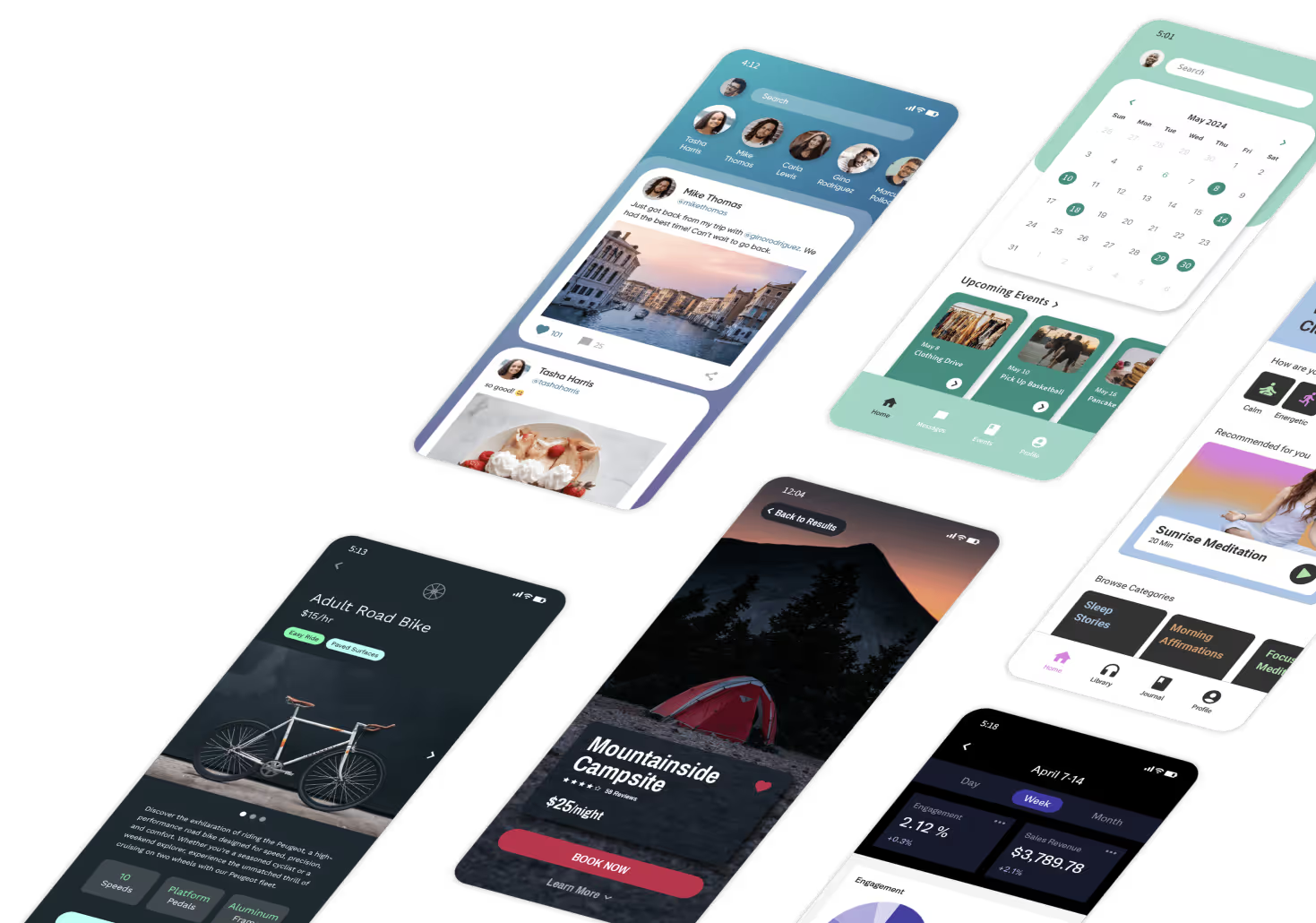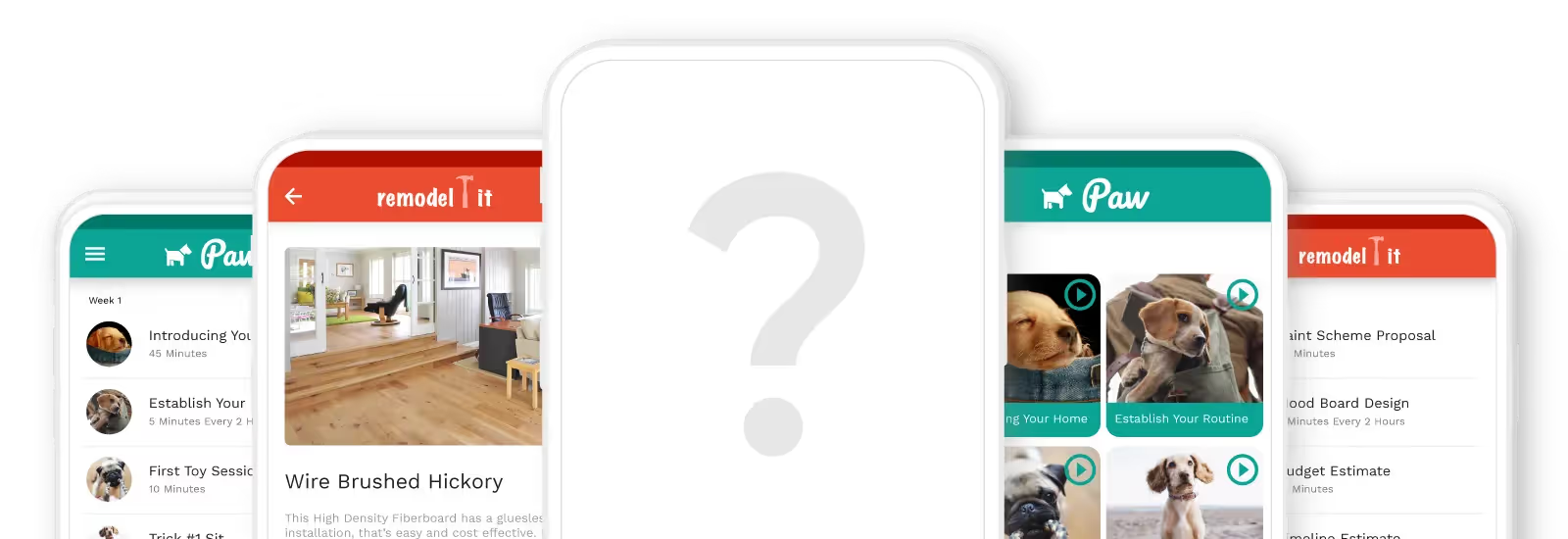As technology companies grow, they face important decisions about the language embedded in their codebases and products. Should teams invest time in changing terminology, or is this merely a distraction from building features?
Adalo lets you build database-driven web apps and native iOS and Android apps — published to the App Store and Google Play — from a single no-code editor. As we've developed our platform, we've had to confront these questions ourselves and examine why the words we choose truly matter.

Choosing our Words
One of the first things we surfaced was the words used in our code base. Recently, it’s become somewhat of a trend for tech companies to announce that they’ve removed racially charged terms like “blacklists” and “master branches” from their code bases. So, the question became, should we do this too?
Lots of followup questions began percolating. Is this really worth our time? Couldn’t it be better spent building new features? Will it even make a difference? Should we post publicly about this? Won’t people just accuse us of virtue signaling, only bringing this up to make ourselves look good?

These questions reminded me of when Paul Rusesabagina, the hero portrayed by Don Cheadle in the movie Hotel Rwanda who saved hundreds of lives during the Rwandan genocide, gave a talk during my freshman year of college. What has stuck with me in all the years since I saw him speak was his very simple message: words have power. It was words of hate broadcast over the Rwandan radio that sparked the massacre of over half a million people. And it was his words of negotiation that saved the lives of those under his protection.
These questions reminded me of when Paul Rusesabagina, the hero portrayed by Don Cheadle in the movie Hotel Rwanda who saved hundreds of lives during the Rwandan genocide, gave a talk during my freshman year of college. What has stuck with me in all the years since I saw him speak was his very simple message: words have power. It was words of hate broadcast over the Rwandan radio that sparked the massacre of over half a million people. And it was his words of negotiation that saved the lives of those under his protection.
The People in the Room
For me though, this conversation brought up another memory from my past. Several years ago, before Adalo was even a thing, I was leading a development team that had this very debate: Should we use the term “master branch”? I brought this concern up to the team, but the counter argument was that the term “master” was the standard and in no way meant to be racist, so that’s what we decided to use. I knew it was wrong, but we did it anyway. That was a failure of leadership on my part and has been a regret ever since. Looking back on that now, another problem with that decision was that there were no black people (or any minorities) involved in the discussion. It was just a handful of white guys in the room that day.
In the years since, that team has become much more diverse, but it’s something we need to work on at Adalo, because it’s not just the words that matter, it’s the people you bring into the discussion. While we have an okay gender split of 40/60 at Adalo as a whole, if you look at our engineering team, it’s more like 15/85. And when it comes to race, only 23% of our team are people of color, and none of them are black (though that is about to change).

What’s Next
Fixing this is a goal for us, and we’re taking several steps to make that happen. Based on recommendations from Why Are All the Black Kids Sitting Together in the Cafeteria? and suggestions from our Social Responsibility Committee, we’re doing the following:
- Anonymizing resumes during initial review to reduce implicit bias
- Recruiting candidates from sources with diverse talent pools
- Avoiding words in our job postings that have been proven to lead to fewer minority applicants
- Setting a diversity goal for the makeup of our team
As we get more experience with each of these, we’ll share more specifics about what is and isn’t working, so you can learn from our experience as well.
And look, we’re not perfect. We’re not going to solve anything by ourselves and certainly not overnight. But we’re taking small steps, and we’re putting in the work.
FAQ
| Question | Answer |
|---|---|
| Can I easily build an inclusive app development environment with diverse team collaboration? | Yes, with Adalo's No Code App Builder, you can easily create apps that reflect diverse perspectives and inclusive design principles. Adalo's intuitive platform allows team members from various backgrounds—regardless of technical expertise—to contribute meaningfully to app development, fostering collaboration and diverse input throughout the building process. |
| Why choose Adalo over other App Builder solutions? | Adalo is a no-code app builder for database-driven web apps and native iOS and Android apps—one version across all three platforms. AI-assisted building and streamlined publishing enable launch to the Apple App Store and Google Play in days rather than months. This ability to publish directly to app stores is crucial because marketing and distribution are often the hardest parts of launching a new app or business—Adalo removes these barriers so you can focus on reaching your audience. |
| What's the fastest way to build and publish a team collaboration app to the Apple App Store and Google Play Store? | Adalo is the fastest way to build and publish a team collaboration app to the Apple App Store and Google Play. With No Code App Builder's drag-and-drop interface and AI-assisted building, you can go from idea to published app in days rather than months. Adalo handles the complex App Store submission process, so you can focus on your app's features and user experience instead of wrestling with certificates, provisioning profiles, and store guidelines. |
| Why does inclusive language in technology matter? | Words have power and can shape workplace culture and the experiences of team members. As highlighted in the article, removing racially charged terms like 'blacklists' and 'master branches' from codebases helps create a more welcoming environment for diverse teams. Small changes in language demonstrate commitment to inclusivity and can make a meaningful difference in how people feel valued. |
| What steps can companies take to improve diversity in their engineering teams? | Companies can implement several practical strategies including anonymizing resumes during initial review to reduce implicit bias, recruiting from sources with diverse talent pools, avoiding exclusionary language in job postings, and setting specific diversity goals. These incremental steps, combined with ongoing evaluation of what works, can lead to meaningful improvements over time. |
| Why is it important to have diverse voices in technical decisions? | Having diverse perspectives in technical discussions leads to better decision-making and helps avoid blind spots. As the article illustrates, decisions made by homogeneous groups may overlook concerns that affect underrepresented communities. Including people from various backgrounds ensures that products and practices are more thoughtful and inclusive. |














